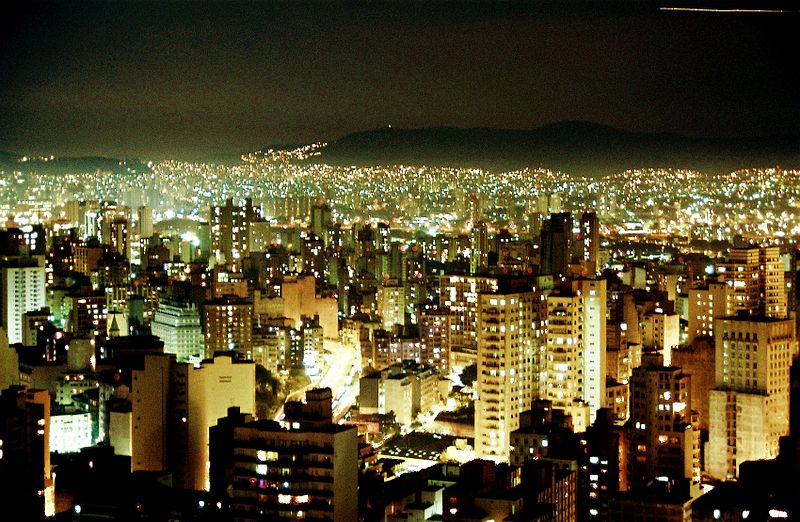Advox members Marianne Diaz and Sarah Myers are reporting live from the NETmundial global Internet governance meeting taking place from April 23-24 in Sao Paulo, Brazil. Civil society, corporate, and government representatives from around the world have gathered to debate the future of Internet governance in a post-Snowden world. This post is part of series of features on the event.
The Global Multistakeholder Meeting on the Future of Internet Governance will be held in São Paulo, Brazil, next week. Driven by the Brazillian President, Dilma Roussef, with the support of the President of the Internet Corporation for Assigned Names and Numbers (ICANN), Fadi Chehadé, the meeting will gather representatives of civil society, private sector, academia and technical community with the aim to “produce universal internet principles and an institutional framework for multistakeholder Internet governance”.
Somewhat curiously, a draft of these principles and of a “roadmap” for the development of this ecosystem was released last week and is open for comments. Some of its aspects — for instance, the exclusion of the term “net neutrality” and its replacement by the more technical, less human-rights-oriented, “end-to-end principle” — have been polemical, despite the fact that they’ve been drawn from a long-standing debate on the state and governance of the network.
While many believe that the meeting could represent a key turning point in this debate — at a moment when the World Wide Web reaches its 25th Birthday and a call for an Internet Bill of Rights is being made worldwide — there’s also skepticism about the ability of this meeting to achieve meaningful outcomes. Some observers are not convinced of the utility of adding one more declaration with no enforceability to the panorama. In a paper entitled “Finding a Formula for Brazil: Representation and Legitimacy in Internet Governance” Internet governance experts Milton Mueller and Ben Wagner suggested that the meeting may be little more than a “rehashing” of old debates:
The Brazil meeting’s call for “universal principles” partly reflects the desire for interstate agreements that can prevent rights violations of the type exemplified by NSA surveillance. It also echoes the WSIS Tunis Agenda’s call for globally applicable public policy principles for Internet governance. But there have been so many Internet principles released in recent years that it is hard to see what the Brazil conference could add. With Brazil’s own principles develop by CGI, the ‘International Principles on the Application of Human Rights to Communications Surveillance’ promoted by civil society groups, numerous reports by U.N. special rapporteur Frank la Rue, the OSCE principles on ‘Governing the Internet’ or UNESCO’s on going push for Internet Universality, the production of ‘Internet principles’ has reached fever pitch. What some experts have called a ‘constitutional moment’ seems instead to be rehashing the same wording again and again across different institutions.
But with the recent approval of Marco Civil, the so-called “Bill of Rights for Internet” by the Brazilian Chamber of Deputies, at least Brazil seems to be approaching a turning point in the protection of user’s rights. With a likely-to-be-approved, enforceable law regulating the net, Brazil’s role as a host and promoter of NETmundial attracts more depth and interest to the discussion.
Even though it has been said that NETmundial is “a response to global anger at the United States for its role in digital spying,” the meeting’s organizers have explicitly noted that the meeting will “not include any discussion or activity to create solutions for specific topics such as security, privacy, surveillance, etc.”
At the same time, many observers have high expectations regarding the US Department of Commerce’s intention to transition its coordinating role over the Internet’s domain name system to the global Internet community. To the extent that NetMundial aims to “embrace all stakeholders requests in the new model of Internet governance,” it will need to approach the ICANN transition by gathering insights from stakeholders in an inclusive, global and fully transparent way.
NetMundial will take place on April 23 and 24 at Sao Paulo, Brazil, will have 33 remote participation hubs in 23 countries. The event will be livestreamed from its website (http://netmundial.br).





6 comments
Not sure what to say other than this thing looks pretty big. Maybe because it is. Can’t wait to find out what they discuss. Naysayers might want to look at the list of attendees here before they start squaring the debate into a waste of time.